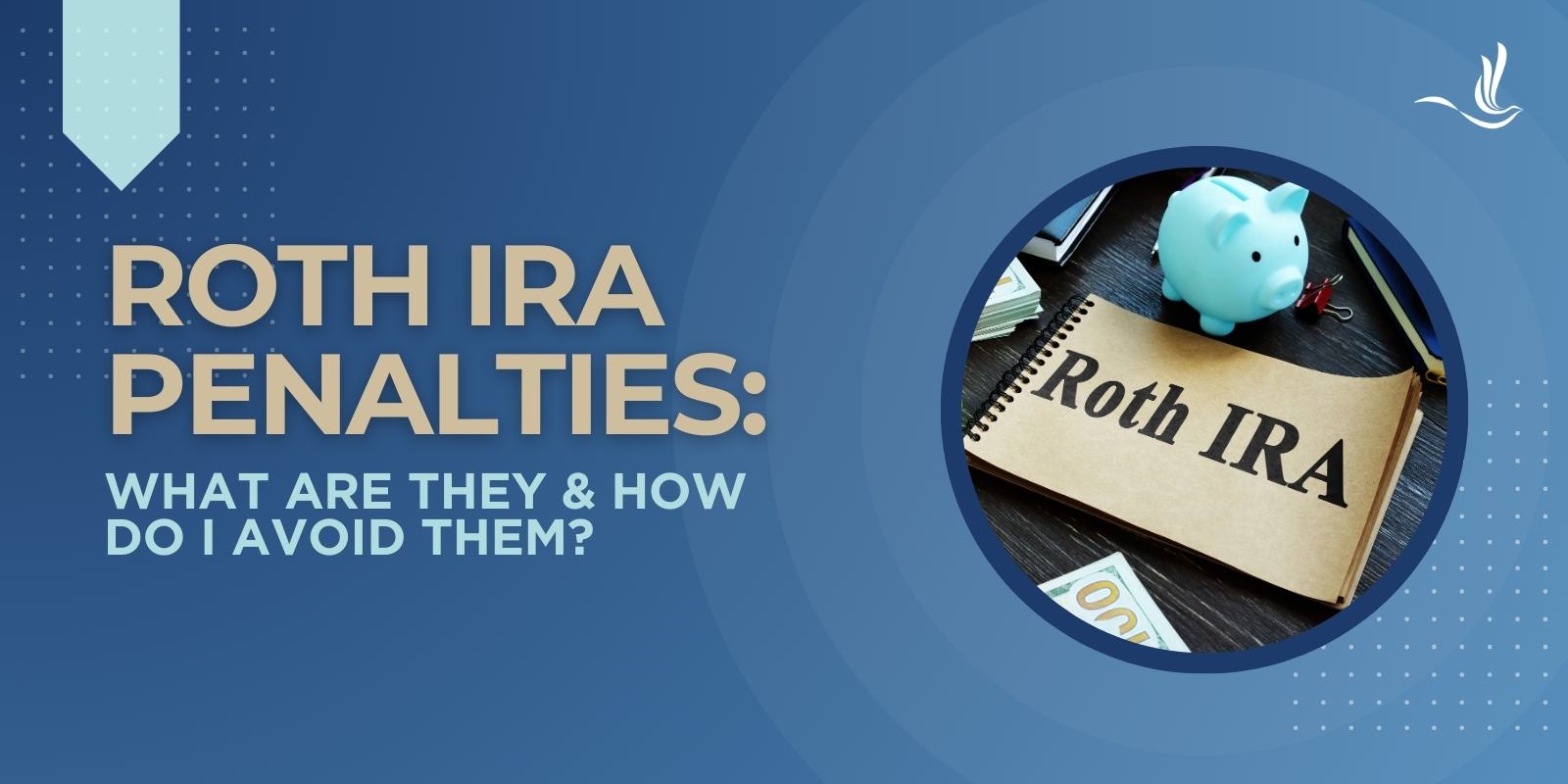The IRS settles balances for back taxes for less than what is owed through the “offer in compromise” program. The idea of this program is to allow taxpayers to have a so-called “fresh start” when they get really behind. This way the IRS collects something rather than nothing.
Those who work as employees are less likely to have back taxes or need to submit an offer in compromise. They are paid wages and the employer withholds income tax and remits that to the IRS. But that isn’t true of business owners who are also employed by their business entities. These business owner-operators may have the ability to change their compensation arrangements to better fit with the IRS’s collection rules.
The recent case of Daniel Palli v. Commissioner, T.C. Memo. 2025-54, provides an opportunity to consider how the IRS evaluates wages for business owner-operators in settling tax debts for less.
Facts & Procedural History
The taxpayer owned or controlled a business entity that served as his source of income. For the 2016 tax year, he reported a tax liability of $401,279 but paid only $15,000 when filing his return. The IRS assessed the remaining balance along with penalties and interest. So he had a total income tax liability in excess of $400,000.
The taxpayer entered into an IRS installment agreement in 2018 that later terminated in 2021. The case was then handled by the IRS tax collections function. In August 2021, the IRS sent the taxpayer a Notice of Intent to Levy. The taxpayer requested a Collection Due Process (“CDP”) hearing in response to the levy. He separately submitted an IRS offer in compromise proposing to pay $177,348 to settle the balance.
The IRS Centralized Offer in Compromise Unit considered the offer and focused on the amount of wages the taxpayer received. The taxpayer had been paying himself $10 per hour from his business. In mid-2022, he increased this to $20 per hour. The increase in wages was to match his company’s lowest-paid employee. However, shortly after this increase, the taxpayer stopped taking wages entirely as the business was “not in a great cash position.”
The IRS Centralized Offer in Compromise Unit calculated the taxpayer’s monthly gross income at $3,200 based on his most recent wage statements. The taxpayer’s tax attorney argued that the IRS should instead average his total $8,800 in wages for the year across all twelve months. This would have resulted in a much lower monthly income figure. The IRS rejected this approach and ultimately denied the taxpayer’s offer.
After appealing IRS collection action through the Collection Due Process procedure, the taxpayer petitioned the U.S. Tax Court for review. The case eventually went through two separate administrative appeals reviews due to computational errors. Both appeals reviews ultimately sustained the rejection of his offer and the proposed IRS levy.
Section 7122 Offers in Compromise
Section 7122 of the tax code grants the IRS broad authority to compromise outstanding tax liabilities. This power comes with specific limitations designed to protect government revenue while providing relief to taxpayers who genuinely cannot pay their full obligations. The statute allows compromise when acceptance would be in the best interests of both the taxpayer and the government.
Treasury regulations further define the acceptable grounds for compromise. These include doubt as to liability, doubt as to collectibility, and effective tax administration. Most business owners facing collection issues pursue offers based on doubt as to collectibility. This approach only requires showing that their assets and income are insufficient to pay the full amount owed within the collection period.
Doubt as to collectibility exists when the taxpayer’s assets and income are less than the full amount of the tax liability. However, determining what constitutes “assets and income” is not straightforward. The IRS determines a taxpayer’s ability to pay by combining two key components: the net equity in their assets and their capacity to make payments from future income over the remaining collection period.
How Does the IRS Calculate Future Income?
The determination of doubt as to collectibility involves an analysis of the taxpayer’s financial situation based on IRS guidelines. These guidelines suggest that the IRS is to examine both current assets and income potential.
This article focuses on the income part of it. Income includes future income. This analysis is to account for all sources of funds that the taxpayer could reasonably access. This analysis extends beyond the taxpayer’s current wages. That was the central issue in this case.
For business owners, this analysis becomes particularly complex because of their ability to control various aspects of their financial arrangements. The IRS can look beyond formal wage payment arrangements to consider the broader economic relationship between the taxpayer and their business entity.
The Internal Revenue Manual (“IRM”) provides guidance for revenue officers conducting these evaluations. The manual emphasizes that the analysis should focus on what the taxpayer can realistically pay themselves from the business rather than what they are currently choosing to pay.
The IRS IRM defines “future income” as “an estimate of the taxpayer’s ability to pay based on an analysis of gross income, less necessary living expenses, for a specific number of months into the future.” The manual provides that “[a]s a general rule, the taxpayer’s current income should be used in the analysis of future ability to pay.”
The future income calculation typically projects the taxpayer’s ability to make payments over the remaining statutory collection period. This is generally ten years from the date of assessment. This projection must be based on realistic assumptions about the taxpayer’s earning capacity rather than current arrangements that may be temporary or artificial.
Revenue officers use standardized allowances for basic living expenses. These are similar to those used in bankruptcy proceedings. They determine how much of the taxpayer’s income could reasonably be available for tax payments. These allowances prevent the IRS from demanding payments that would leave taxpayers unable to maintain basic living standards.
Recent Wage Information vs. Averages
When analyzing the taxpayer’s wage income, the IRS revenue officer focused on the most recent wage statements showing $3,200 monthly income rather than accepting the taxpayer’s request to average his yearly wages. The taxpayer had recently increased his wages to $20 per hour from the historical $10 per hour before stopping wages entirely.
The IRM suggeststs that IRS revenue officers focus on current financial information when evaluating offers in compromise. The information should generally be no older than six months according to the IRM.
The IRM specifically addresses situations where taxpayers have irregular employment or are temporarily unemployed. For taxpayers who are “temporarily or recently unemployed or underemployed,” the IRM instructs revenue officers to “[u]se the level of income expected if the taxpayer were fully employed and if the potential for employment is apparent.”
Current information provides the best indicator of the taxpayer’s present ability to generate income and service their tax obligations. This is true even if the IRS sat on the offer for more than a year before getting around to reviewing it. This inevitable IRS delay can help or hurt taxpayers in the analysis. Financial circumstances can change quickly. This is particularly true for business owners whose income may fluctuate based on market conditions, business performance, or strategic decisions.
However, the IRM also provides specific guidance on when income averaging may be appropriate. For taxpayers with “irregular employment history or fluctuating income,” the IRM allows revenue officers to “[a]verage earnings over the three prior years.” But this exception is limited for wage earners: “This practice does not apply to wage earners. Wage earners should be based on current income unless the taxpayer has unique circumstances.”
The Tax Court’s View on Wage Averaging
The tax court considered whether the most recent or average wages should be used in evaluating the offer. The court said that the current wages should be used.
The court noted that it was “reasonable to assume that the wage increase to $20 per hour would carry forward, given that it is normal for wages to increase, but not to immediately thereafter halve.”
The court’s analysis aligns with the IRM’s guidance that wage earners should be evaluated based on current income rather than historical averages. The taxpayer was essentially a wage earner from his own business. The IRM makes clear that income averaging “does not apply to wage earners” absent “unique circumstances.”
Perhaps most significantly, the court noted that even if the taxpayer had successfully argued for lower wage calculations, “such a decrease might very well have appropriately been offset by consideration of the amount obtainable with respect to the business.” The IRS apparently didn’t factor in the value of the business in the “asset” side of the payment calculation.
The court’s reasoning seems to reflect that the taxpayer’s wage reduction could have been an artificial change rather than one reflecting genuine changes in his business circumstances or earning capacity. The IRS and courts usually suspect maniplation even when there is none. The court’s holding seems to recognize that allowing taxpayers to benefit from voluntary wage reductions could in come cases lead to manipulation to avoid paying taxes.
The IRS’s Typical Approach for Wages
Even though the IRS revenue officer opted for the current wage amounts in this case, that is not what normally happens. Usually the taxpayer’s wages have decreased rather than increased. Given the variable nature of the payments, in practice, the IRS usually picks the source that provides the highest amount of wages.
IRS revenue officers commonly review the prior two years of income tax returns to establish a baseline of historical compensation. They also focus on recent pay or deposits from the business, as in this case. This usually covers the last few months. The income that is used by the IRS is typically the higher of these amounts.
If that amount is unreasonably low, IRS revenue officers often consider the taxpayer’s circumstances and what constitutes reasonable compensation for the services the business owner actually performs for the corporation. This analysis draws from the same principles used in employment tax compliance.
The IRS IRM specifically instructs revenue officers to “[g]ive consideration to the taxpayer’s overall general situation including such facts as age, health, marital status, number and age of dependents, level of education or occupational training, and work experience.” Thus, for example, the IRS could assume that a doctor whose practice is structured as a C corporation would be paid the average wage for doctors in the local area. This is possible as the IRS revenue officers have wide discretion in deciding what factors into their offers and even whether to accept or reject an offer.
The Takeaway
This case shows that business owners cannot always avoid paying their unpaid tax debts even if their wages legitimately decreased. The IRS can, if it does a thorough analysis, consider an estimate of what it says is the taxpayer’s realistic earning capacity rather than current wage payments when evaluating settlement offers. While the IRS prevailed in this case, the facts are usually the opposite in most cases. In those cases, this case could be favorable precedent–for the idea that the IRS should have to accept the current income and not average or historical income amounts.
What this case also shows is tha the IRS doesn’t always conduct the most thorough analysis in evaluating offers. The IRS failed to include the entire business value as an asset in this case. This could have significantly increased the taxpayer’s calculated ability to pay. This reflects the nature of the IRS’s offer in compromise program. The IRS employees working the offer have wide discretion in their determinations and what they include and exclude from their analysis–sometimes it is in the IRS’s favor, sometimes it is not.
Watch Our Free On-Demand Webinar
In 40 minutes, we’ll teach you how to survive an IRS audit.
We’ll explain how the IRS conducts audits and how to manage and close the audit.


























